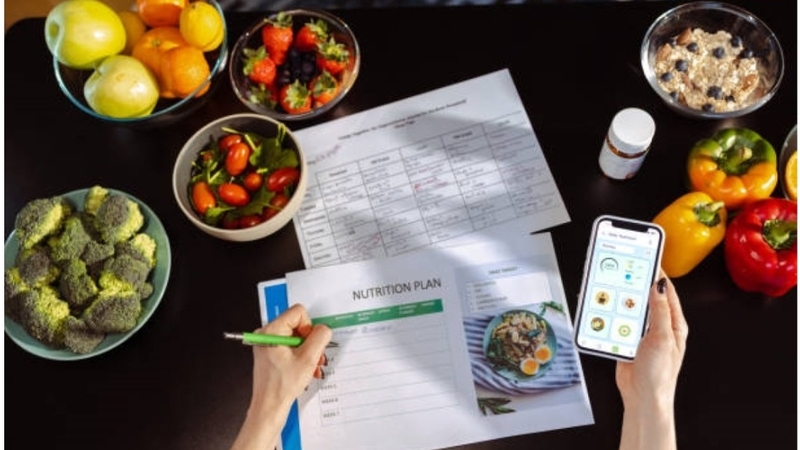In an era where health consciousness is on the rise, and dietary requirements vary widely among individuals, the demand for personalized nutrition solutions is greater than ever.
For those with special dietary needs such as managing allergies, intolerances, chronic conditions, or pursuing specific lifestyle choices like veganism or keto, maintaining a balanced diet can be challenging. Fortunately, advancements in technology have paved the way for innovative tools to simplify this process.
Among them, nutrition tracker apps have emerged as powerful allies in navigating the complexities of special diets, offering convenience, precision, and invaluable insights into one’s nutritional intake. Let’s explore the role of these apps in managing special diets and their impact on promoting health and wellness.
Understanding Special Diets
Special diets encompass a broad spectrum of dietary approaches tailored to address individual health concerns, preferences, or ethical beliefs. These diets may restrict certain food groups, prioritize specific nutrients, or require meticulous monitoring of portion sizes and macronutrient ratios.
With the rise of personalized nutrition services like Equalution offer tailored meal plans and guidance based on individual goals and dietary requirements. Some common examples include:
- Gluten-free: Eliminates gluten-containing grains like wheat, barley, and rye, crucial for individuals with celiac disease or gluten sensitivity.
- Dairy-free: Avoids dairy products due to lactose intolerance or dairy allergies.
- Vegan: Excludes all animal-derived foods, including meat, dairy, eggs, and honey, often adopted for ethical, environmental, or health reasons.
- Ketogenic: Emphasizes high-fat, low-carbohydrate intake to induce ketosis, beneficial for weight loss, epilepsy management, and metabolic health.
- Low FODMAP: Limits fermentable carbohydrates to alleviate symptoms of irritable bowel syndrome (IBS) or other digestive disorders.
Managing these diets effectively requires careful planning, label reading, and sometimes, meticulous tracking of food intake to ensure nutritional adequacy and compliance with dietary restrictions.
The Rise of Nutrition Tracker Apps
Enter nutrition tracker apps, a game-changer in the realm of dietary management. These mobile applications leverage the power of smartphones, databases, and data analytics to empower users with real-time monitoring, analysis, and personalized recommendations for their dietary goals.
Whether it’s counting calories, tracking macronutrients, or monitoring micronutrient intake, these apps offer a comprehensive toolkit for managing special diets with ease and precision.
Key Features and Benefits
Key features and benefits of Nutrition Tracker Apps include food logging, customization, nutrient analysis, and meal planning for users. Some common features and benefits include:
1. Food Logging and Barcode Scanning
Nutrition tracker apps allow users to log their meals by entering food items manually or scanning product barcodes.
This feature simplifies the process of tracking dietary intake, eliminating the need for tedious manual calculations and estimation.
2. Customization and Personalization
Users can set personalized dietary goals such as calorie targets, macronutrient ratios, or specific nutrient requirements, tailored to their unique needs and preferences.
The app then provides recommendations and feedback to help users align their food choices with their nutritional goals.
3. Nutrient Analysis and Insights
Nutrition tracker apps analyze the nutritional content of logged foods, providing valuable insights into calorie intake, macronutrient distribution, vitamin and mineral consumption, and potential nutrient deficiencies.
This data enables users to make informed decisions about their dietary habits and identify areas for improvement.
4. Allergen and Ingredient Tracking
For individuals with food allergies, intolerances, or sensitivities, nutrition tracker apps offer allergen and ingredient tracking features to flag potential triggers and ensure compliance with dietary restrictions.
This functionality enhances safety and peace of mind when navigating food choices in various settings.
5. Meal Planning and Recipe Suggestions
Many nutrition tracker apps include meal planning tools and recipe databases to help users plan balanced meals, discover new culinary ideas, and diversify their diet while staying within their nutritional parameters.
This feature promotes creativity and variety in meal preparation, essential for long-term adherence to special diets.
6. Wearable Devices and Health Platforms
Some nutrition tracker apps sync seamlessly with wearable devices like fitness trackers or smart scales, allowing users to incorporate activity data and biometric measurements into their dietary analysis.
Integration with health platforms enables holistic tracking of health metrics and promotes a synergistic approach to wellness management.
Case Studies and Success Stories
The efficacy of nutrition tracker apps in managing special diets is supported by numerous case studies and success stories. Individuals with diabetes have reported improved blood glucose control and reduced insulin requirements through diligent tracking of carbohydrate intake and meal timing.
Patients with gastrointestinal disorders such as Crohn’s disease or ulcerative colitis have experienced symptom relief and improved quality of life by adhering to a low FODMAP diet with the assistance of nutrition apps. Moreover, athletes and fitness enthusiasts have achieved their performance and physique goals by optimizing their nutrition with the guidance of these tools.
Challenges and Limitations
While nutrition tracker apps offer undeniable benefits, they are not without challenges and limitations. The accuracy and reliability of food databases may vary, leading to discrepancies in nutrient calculations. Moreover, the reliance on self-reported data introduces potential biases and inaccuracies, particularly regarding portion sizes and ingredient composition.
Additionally, some users may experience obsessive tendencies or disordered eating behaviors when fixating on tracking metrics, highlighting the importance of maintaining a balanced approach and seeking professional guidance when necessary.
Future Directions and Innovations
As technology continues to evolve, nutrition tracker apps are poised to undergo further advancements and innovations. Integration of artificial intelligence (AI) algorithms and machine learning capabilities promises to enhance the accuracy of nutritional analysis and provide more personalized recommendations based on user feedback and behavioral patterns.
Wearable sensors and biometric tracking devices may offer seamless integration with nutrition apps, enabling real-time monitoring of physiological parameters and personalized dietary interventions.
Conclusion
In an increasingly digitalized world, nutrition tracker apps have revolutionized the way we manage special diets, offering a wealth of features and benefits to empower users in achieving their health and wellness goals.
From simplifying food logging to providing personalized insights and recommendations, these apps serve as invaluable tools for navigating the complexities of dietary restrictions and promoting optimal nutrition.
